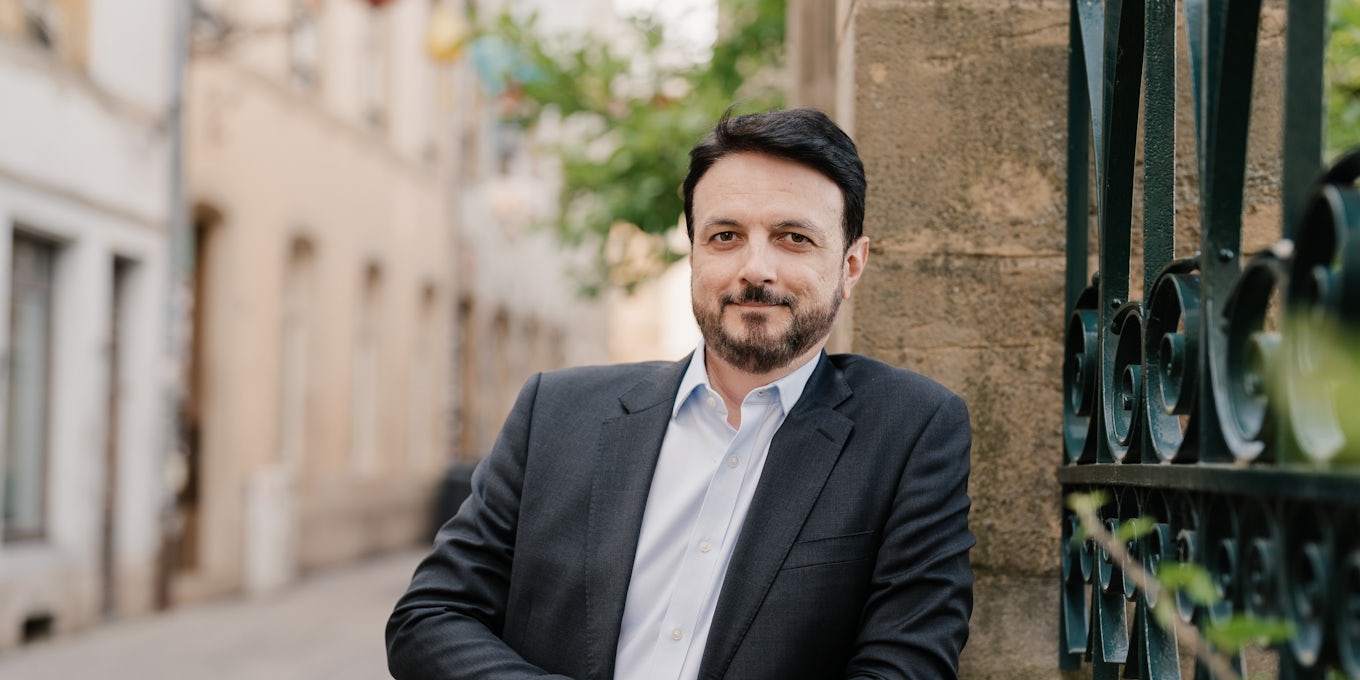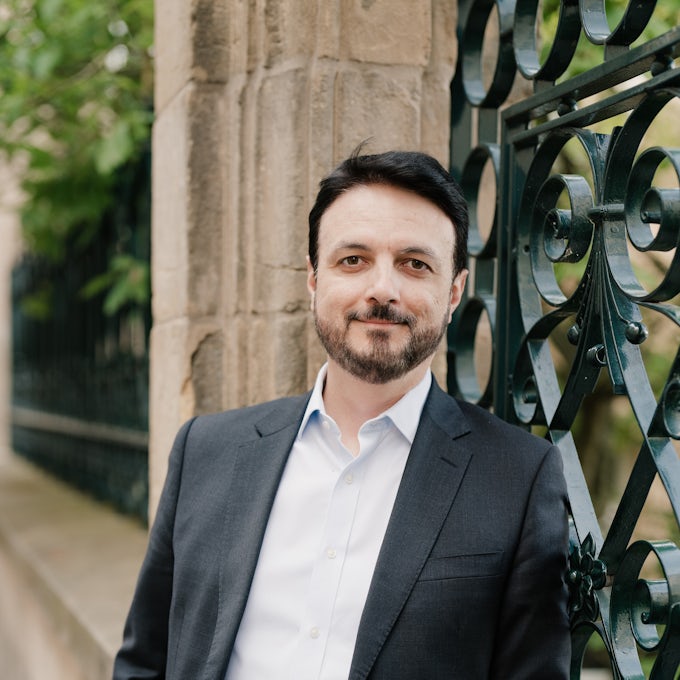Humberto Carvalho, Managing Director of Banco Bradesco Europe, has worked for the bank since he began his career in 1999.
It’s a career path that surprises Humberto himself, who, after studying law, was destined to become a magistrate. However, after completing a traineeship in the banking sector while studying at university, he didn’t look back.
After working as a Foreign Exchange Trader for ten years, he came to Luxembourg for the first time in 2009 on a three-month secondment for the bank. Despite the existence of the Luxembourg district in his hometown of Belo Horizonte and the long important links with ArcelorMittal, he knew next to nothing about the Grand Duchy.
He went on to contribute to Banco Bradesco’s international development, holding positions first in the Cayman Islands, then in London, before returning to Luxembourg where the group’s only European subsidiary is based.
In the 4 years he has been living in Luxembourg with his family, he has made the most of the country’s green character, as well as the Grand Duchy’s central location in Europe. “We love to travel, and Luxembourg is ideal for this. We’re at the heart of world history and there are so many places to visit.”
You’ve been in Luxembourg since 2019. What made you decide to make the move?
In 2017, the bank invited me to join our London branch in the United Kingdom. However, two years later the Bank made a decision to move its European hub from London to Luxembourg and I was invited to take on the role of Senior Manager here. At first the proposal seemed a little challenging for my family, as this would be the first country outside Brazil that I would live in where the official language was not English. But I soon realised that this wouldn’t be a problem. Apart from the chance of learning new languages, we found out that compared to when I first lived here, Luxembourg has become very cosmopolitan, with some very good international schools teaching in English and an international work ecosystem.
So you had your first experience of the country long before your current stay?
From 2008 to 2009 I was lucky enough to be included in an international training programme of Bradesco. Some employees and I proposed that we include Luxembourg in the programme to study its financial services model, in particular its strength as a private banking hub, and the bank understood that this was a good idea.
From a life perspective, Luxembourg has clearly become more cosmopolitan. The city has grown and has become more vibrant.
Managing Director of Banco Bradesco Europe
What were some of the bigger differences and developments within Luxembourg that you noticed between your two stays?
From a financial services perspective, in particular the banking sector, regulatory aspects have taken a leap forward – on an EU and Luxembourg level. Since the financial crisis there have been several developments, such as MiFID II, CRD IV / CRR and GDPR, that have been introduced to better protect our clients. Luxembourg is also increasingly relied on due to its stability, most clearly marked by its AAA rating. Given stability is so crucial for HNWI and the banks that serve them, this remains a crucial pillar for Luxembourg.
From a life perspective, Luxembourg has clearly become more cosmopolitan. The city has grown and has become more vibrant. As an example, when I first visited in 2009 the Cloche d’Or district did not exist, and infrastructure, in particular the public transport, was far less developed.
The big Portuguese-speaking community is a large advantage for our bank, given that most of our clients are Brazilians. It makes local staff recruitment easier.
What surprised you the most when you moved here with your family in 2019?
The international nature of the country, made so by the almost 50% of foreigners who have made Luxembourg their home. My family and I were amazed when we arrived, even though we didn’t speak French or German, to realise that we could easily make our daily activities speaking English or Portuguese. In fact, the big Portuguese-speaking community is a large advantage for our bank, given that most of our clients are Brazilians. It makes local staff recruitment easier.

In the finance sector, what kind of specialists does need Bradesco Bank to improve the bank's operations?
Technical skills are important and we need specialists who have knowledge in finance, compliance, risk, wealth management, etc. However, soft skills are also very important and nowadays we are placing great emphasis on professionals who have teamwork, critical thinking, emotional intelligence and effective communication.
How do you see your career developing in the coming years? Do you have other horizons in mind?
No, in the medium-to-long term my future lies in Luxembourg. Given the ambitions we have for our European hub, this will take all my attention for at least the next five years. The country’s expertise in private banking and asset management is clear, but Luxembourg’s role as a hub for corporate banking is also not in doubt.
It’s an area I know very well from my previous roles and, while we’ve been active in this area since 2010, it’s a business line I want to strengthen for Bradesco.
The country’s expertise in private banking and asset management is clear, but Luxembourg’s role as a hub for corporate banking is also not in doubt.
What has determined your career choices thus far?
When I was younger, I was primarily driven by exploring new countries. Now, my main concern is my family. I always try to find a place where they are comfortable. Essentially, quality of life has become my number one criterion, and in this aspect, Luxembourg has a clear head start. It’s a welcoming place to live, we integrated well, and we feel very safe here.
What has been the most important investment you’ve made in yourself thus far?
I enjoy studying and reading. I also spend a large amount of time understanding the latest regulations and developing new skills. However, I’m convinced that the best investment I’ve made in myself since taking up my post here in Luxembourg has been to make sure that we do the utmost for the good of our employees and the community in general.
Our workforce is our most valuable asset. I think that all companies need to understand this and make sure they are working to improve their work environment. It’s also critical that we get involved in local organisations to give back what we gain from being here.
